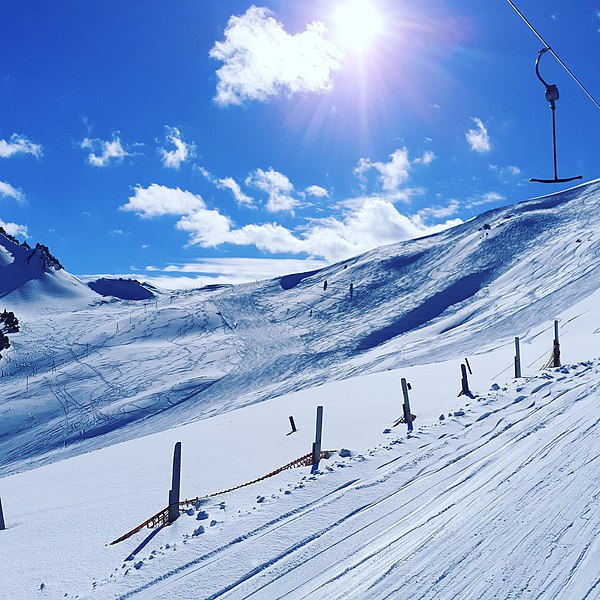
A recent study predicts a significant decline in snow days at Alpine ski resorts by the end of the century, with natural snow cover possibly disappearing altogether in one out of every eight
resorts worldwide.
Published in the scientific journal PLOS ONE, the study, led by Veronika Mitterwallner from the University of Bayreuth in Germany, examined snow cover forecasts for seven major mountain regions globally, including the Alps in Europe, the Andes, the Appalachian Mountains, the Australian Alps, the Japanese Alps, the Southern Alps in New Zealand, and the Rocky Mountains. Gregor Mathes from the University of Zurich also contributed to the research.
Mitterwallner noted in a press release that all major ski regions are expected to experience a significant reduction in days with natural snow cover under various emission scenarios.
Under a scenario of strong global warming, the study forecasts that no snow will be present in 13% of ski resorts between 2071 and 2100, while 20% of resorts will experience a 50% reduction in snow days.
In the European Alps, the average number of days with snow cover per year is projected to decrease by 42%, with an estimated 80 fewer snow days annually by 2071 compared to the current average.
While ski resorts may turn to artificial snowmaking, the economic viability of many resorts worldwide could be adversely affected. Consequently, a shift of ski tourism to higher altitudes is expected, posing challenges for Alpine flora and fauna.
These findings align with previous studies, including one published in the journal Nature Communications in August, which indicated that one-third of Swiss ski resorts would face a high risk of insufficient snow if the climate warms by 2°C. Photo by Saraow, Wikimedia commons.








































